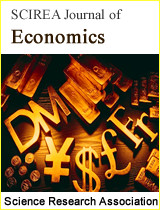Global Geopolitical Challenges for Relations between European Union and China
DOI: 10.54647/economics790509 25 Downloads 6656 Views
Author(s)
Abstract
The main aim of the paper is the presentation of global geopolitical challenges for relations between European Union and China. What indicates the importance and innovativeness of the research is the presentation of the technical progress especially in China, the growth of economic ties with the European Union and the benefits resulting from liberalized of the China foreign trade policy under WTO. Realistic point is important trends in the trade regime between EU and China. Their commercial relations are too important to become hostage to political grandstanding or airy rhetoric by politicians performing for domestic galleries. Europe is China’s largest export market, and China now ranks second on Europe’s list of key trading partners. Trade with China dwarfs any other trade relation Europe has with emerging Asia. Disturbing this relationship would have ramifications for sales, growth and employment. Economic growth is generally more preferable in China to military and extensive expansion. With new investments, a country can transform its position through industrial expansion at home and sustain it through international trade. China is especially sensitive to the advantages of intensive growth and will not wish to disrupt essential economic arrangements that have been crucial to her success. The Chinese government is less concerned today about Western criticisms of China’s autocratic system, but the Chinese people have grown more nationalistic and represent a potentially greater threat to commercial relations. Commercial interests in autocratic regimes cause political dilemmas. EU-China trade has grown increasingly one-sided, and this is not sustainable. It is EU and China mutual interest that trade relations are balanced and fair, to benefit current and future generations. EU hope to go through other sectors of bilateral cooperation and how the EU and China can tackle global challenges. EU-China trade has grown increasingly one-sided, and this is not sustainable. It is EU and China mutual interest that trade relations are balanced and fair, to benefit current and future generations. European Union must have a realistic assessment to what extent it can somehow magically change the Chinese government’s outlook and political choices. Chinese and European leaders must find a new normal – a functional relationship that works for both sides.
Keywords
European Union, China, trade political relations, technical progress, foreign trade policy, global geopolitical challenges.
Cite this paper
Zdzisław W. Puślecki,
Global Geopolitical Challenges for Relations between European Union and China
, SCIREA Journal of Economics.
Volume 10, Issue 2, April 2025 | PP. 27-68.
10.54647/economics790509
References
| [ 1 ] | Crookes P.I., Resetting EU–China relations from a values-based to an interests-based engagement, Contemporary China Studies Program, School of Interdisciplinary Area Studies, University of Oxford, 74 Woodstock Road, Oxford OX2 6HP, UK. 2013. |
| [ 2 ] | Erixon F. and Messerlin P., Containing Sino-European Protectionism, Institute of Economic Affairs. Published by Blackwell Publishing, Oxford. 2009 |
| [ 3 ] | García-Herrero A. Toward EU-China non-summit? The EU-China relationship is caught in a cycle of disgruntlement – and it doesn’t appear to be getting any better Publishing date July 09, Bruegel 2025. |
| [ 4 ] | Kugler, J., The Asian Ascent: Opportunity for Peace or Precondition for War? “International Studies Perspectives, A Journal of the International Studies Association”, Volume 7, Number 1, February. 2006. |
| [ 5 ] | Rosecrance, R., Power and International Relations: The Rise of China and Its Effects, “International Studies Perspectives, A Journal of the International Studies Association”, Volume 7, Number 1, February 2006 |
| [ 6 ] | Zeneli V, What the EU and China want from the summit that neither seems to want, By Atlantic Council experts, Atlantic Council’s Europe Center, July 21, 2025. |

